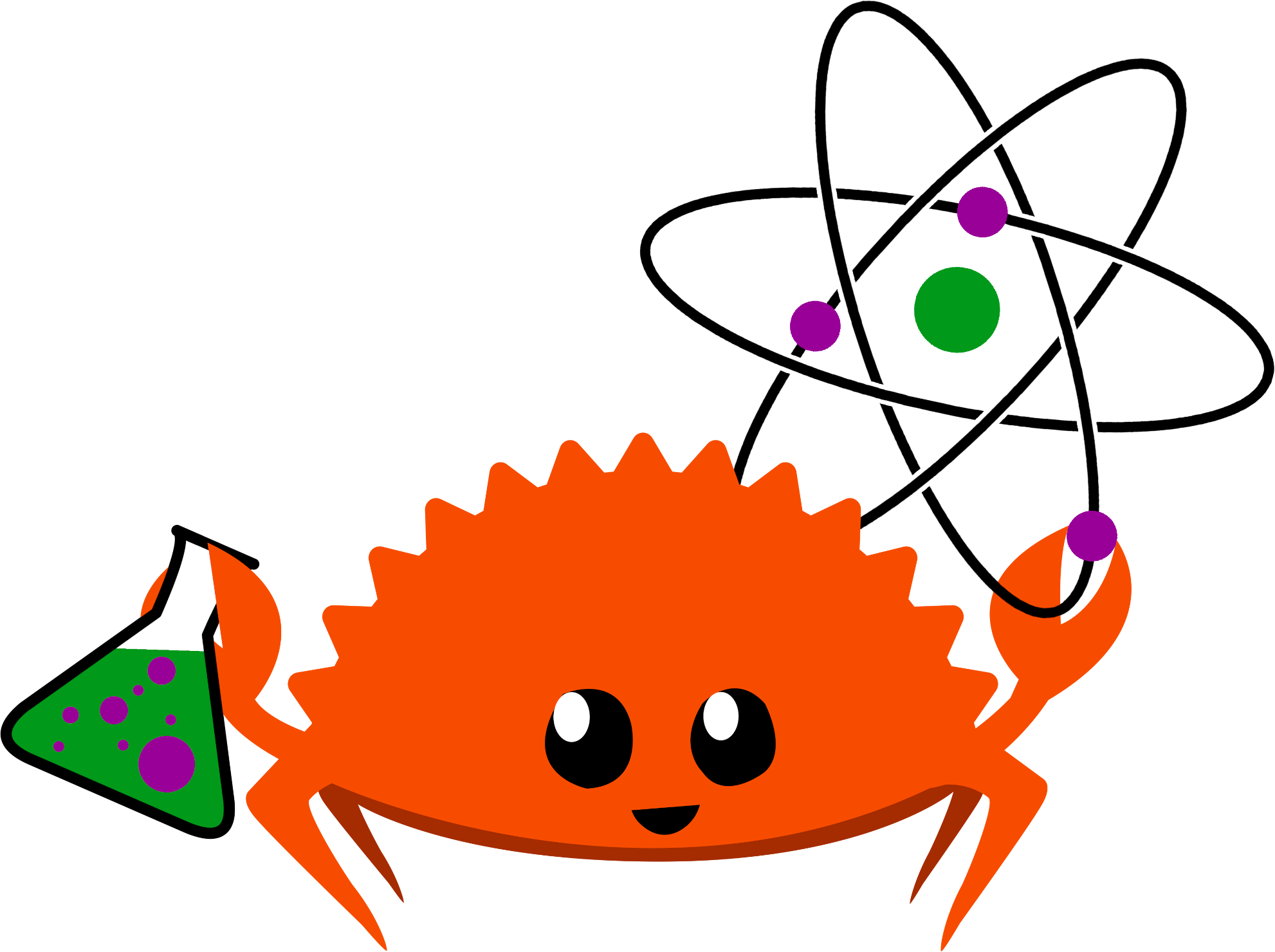Scientific Computing in Rust Monthly #10
Welcome to this month's issue of Scientific Computing in Rust Monthly.
It's been a busy month since the last newsletter, with this year's annual Scientific Computing in Rust workshop taking place in July - if you missed it, you can find recordings of all the talks on the Scientific Computing in Rust YouTube channel.
Scientific Computing in Rust Monthly can be viewed online at scientificcomputing.rs/monthly, you can sign up to receive an email copy at mailinglist.scientificcomputing.rs, or you can subscribe using the RSS feed at scientificcomputing.rs/monthly/rss.xml. We're looking for volunteers to become editors of this newsletter: if you're interested, you can find more information in the "Help wanted" section below.
Items can be added to the next issue of the newsletter by opening a pull request to the Scientific Computing in Rust Monthly repository on GitHub. You can find more information about adding items here.
Crate of the month: cargo-upgrades
This month's crate of the month isn't explicitly a scientific computing tool, but it's still really useful. cargo-upgrades is a cargo extension that can be used to check if your crate's dependencies are up to date with the most recent stable releases. We recommend getting your CI to run this to give you a nudge when one of your dependencies has a new release you can update to.
New releases
approx-derive 0.2.6
Derive macros for the popular approx crate.
approxim 0.6.6
Fork of the approx crate which includes many PRs and extended functionality (such as derive macros, support for optionals, etc.) The original crate has not been updated since ~3 years.
indexing_fmt 0.1.1
A helper crate for formatting superscripts and subscripts. Especially helpful when formatting variable names automatically.
ndelement 0.3.0
A new version of the finite element definition library ndelement has been released. This new version adds implementations of Piola transforms to map element values to physical cells, and DOF transformations as described in this 2022 paper by Scroggs et al.
Quant-Iron 1.1.0
A high-performance, hardware-accelerated modular quantum computing simulator library with a focus on physical applications.
Quant-Iron provides tools to represent quantum states, apply standard and customised quantum gates, perform measurements in multiple bases, build quantum circuits,
implement quantum algorithms and represent and evolve quantum many-body systems using Ising models, Heisenberg models, and Trotter-Suzuki decomposition and time evolution.
repgenerate v0.1.0
repgenerate is a Rust library that can generate illumina sequencing reports for any Illumina genetics sequencing platform.
sequenceprofiler v0.1.0
seqeuenceprofiler is a Rust library for genetics sequencing.
Events
Scientific Computing in Rust 2025, recordings of talks
It's just over a month since this year's Scientific Computing in Rust virtual workshop took place. Recordings of all the talks from the workshop are available on the Scientific Computing in Rust YouTube channel, or you can find links to all the recordings at scientificcomputing.rs/2025/timetable
Publications
Jonas Pleyer, Christian Fleck, "cellular_raza: Cellular Agent-based Modeling from a Clean Slate", Journal of Open Source Software (JOSS)
cellular_raza is a cellular agent-based modeling framework which allows researchers to construct models from a clean slate. In contrast to other agent-based modeling toolkits, cellular_raza was designed to be free of assumptions about the underlying cellular repre- sentation. This enables researchers to build up complex models while retaining full control over every parameter introduced. It comes with predefined building blocks for agents and their physical domain to quickly construct new simulations bottom-up. Furthermore, cellular_raza can be used with the pyo3 and maturin packages and thus act as a numerical backend to a Python package.
Help wanted
Scientific Computing in Rust newsletter editors
We're looking for an additional 1-2 people to become editors of this newsletter. Being an editor of the newsletter means taking charge of putting together an issue of the newsletter every few months, by encouraging and reviewing items added by the community. If you're interested in becoming one of the editors, please email Matthew Scroggs at rust@mscroggs.co.uk. If you have any queries or questions, you can email or message Matthew on the Rust-SciComp Zulip chat.
